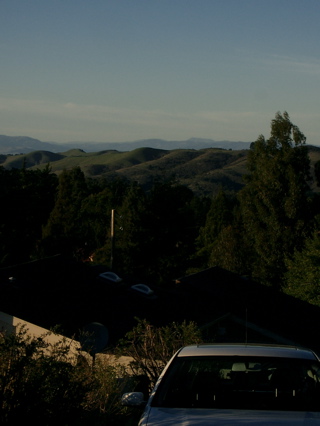For months now, we’ve had Tom’s old bed — a pretty nice twin-size platform bed with six drawers — sitting in our living room. I thought it would be easy to sell. I posted ads on Craigslist, which for the uninitiated is a kind of online flea market where you can find anything. The service started here in San Francisco, and I actually worked with the founder briefly at the online project I joined when I left The Examiner. It was a big mailing list then, and now it’s a hugely successful community and e-commerce site that eBay has bought into. I’ve sold a bike there and bought A’s playoff tickets on zero notice, so I know it works.
That knowledge aside, Tom’s bed will just not move from our cramped premises. I posted two perfectly competent and ordinary ads in June for a "twin-size chest bed and mattress." I linked to the maker’s fine pictures of the bed. I gave a very clear description. We didn’t get a single response. And there in our living room the bed still sits. Kate and I have talked about giving it to a charity. But yesterday, I was seized with just enough initiative to take a few digital pictures of the bed and try another Craigslist posting.
When I sat down to write this time, though, I realized I had it all wrong. So without thinking about it, the "twin-size chest bed and mattress" became "It’s The Amazing Chest Bed." After I wrote that heading, everything else fell into place (check this link for the Craigslist posting for the full effect; the ad text is below). The bed is now a happening.
Has it sold, you ask? Well, not yet. I’ve had seven inquiries about it since yesterday, though. So maybe it’ll move this time.
***
It’s The Amazing Chest Bed
It’s the ultimate experience in sleep for persons of a certain size and/or age. A chest bed with six generous drawers and a headboard that offers extra storage. The mattress is a nearly new extra-long twin size (requires extra-long twin sheets; regular twin size won’t fit; more on dimensions below). If you’re tall and skinny, it’s perfect for you. If you have a family member who may someday get tall and skinny (we do, but he quickly outgrew this mattress), it’s a perfect size for you (and whoever that person is), too. But don’t take our word for it — check it out for yourself! While we’d like to offer test sleepovers in our smartly appointed Berkeley digs — we could have hot chocolate and a warm fire and listen to "Winnie-the-Pooh" — we can’t accommodate the throngs we expect to demand the right to purchase this article. So you’ll have to be content with checking out pictures of The Amazing Chest Bed, images taken at great expense by a locally renowned furniture photographer.
We’re asking $250 for The Amazing Chest Bed — a small price for a piece of furniture that could conceivably have had a featured role as a prop in the popular USA Network series "Monk," starring Tony Shalhoub. We paid $900 for the bed, headboard and mattress.
Act now, and we, the soon-to-be former owners of The Amazing Chest Bed will consider bringing it over to your place (please: Western Hemisphere addresses only) at no extra cost. For the extra-practical-minded: Dimensions are: Bed platform/drawer unit: 76 1/4 inches long x 38 inches wide x 24 inches tall. Mattress: 80 inches long x 38 inches wide x 10 inches high. Headboard: 8 1/2 inches deep x 38 inches wide x 50 inches tall. So combined length of mattress, platform and headboard is about 88 1/2 inches. Combined height of platform and mattress is about 34 inches.



